Abstract
CSF leak still is one of the major sources of morbidity after extensive skull base procedures. Of the various standard closure techniques of traumatic or iatrogenic dural defects, none provides a really waterlight, persistent closure. Even the supplementary use of fluid fibrin glue did not substantially improve the rate of postoperative CSF leaks. The application of a collagen sheet covered with a fixed layer of solid components of a fibrin tissue glue (TachoComb®) overcomes the major drawbacks of dural sealing in skull base surgery. The dural defects of 58 patients undergoing extensive skull base procedures were sealed with this new hemostyptic agent. The series includes 44 patients undergoing primary surgery, 6 patients with traumatic or iatrogenic tears of venous sinuses, and 8 patients with postoperative leaks after previous skull base procedures in which other sealing methods were previously used. In the group of primary surgery, none of the patients had postoperative CSF leakage or venous rebleeding. One patient developed a delayed pneumatocephalus. All cases of patent CSF fistulas were resolved without any adjuvant therapy. Preliminary experience shows that the good sealing and hemostyptic performance of this new agent will considerably reduce the risk of postoperative CSF leak and infection after skull base procedures.
Full text
PDF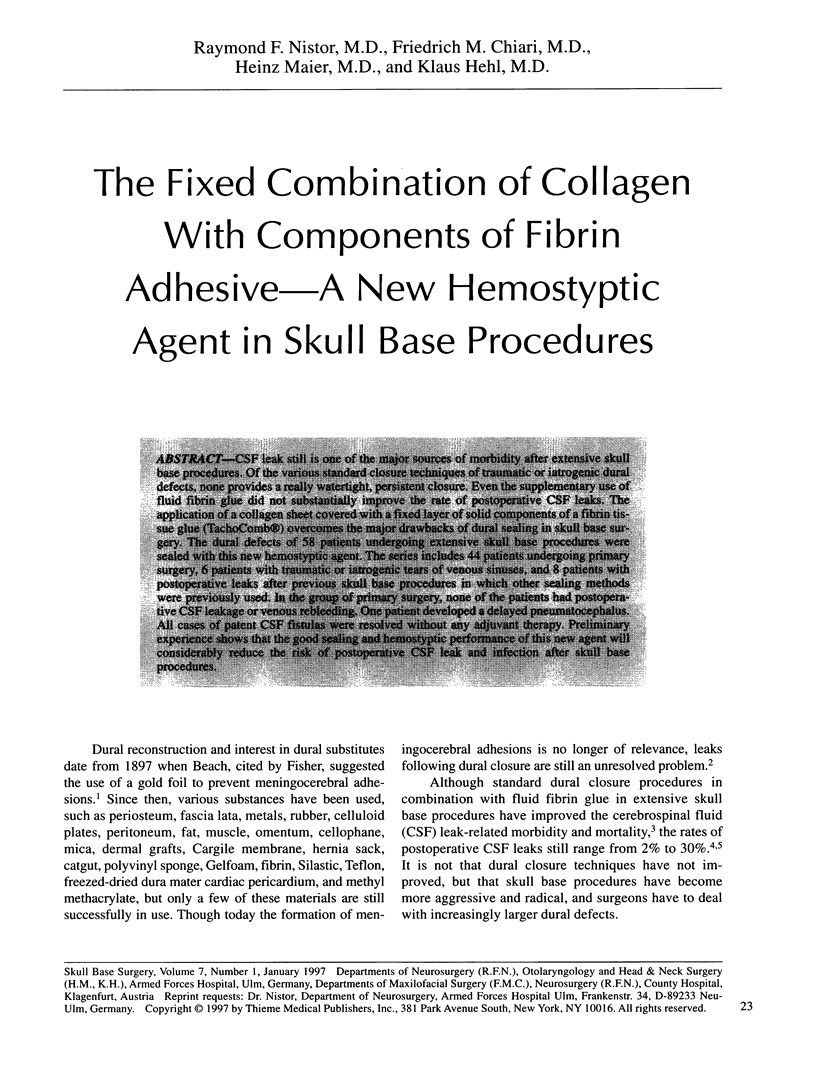
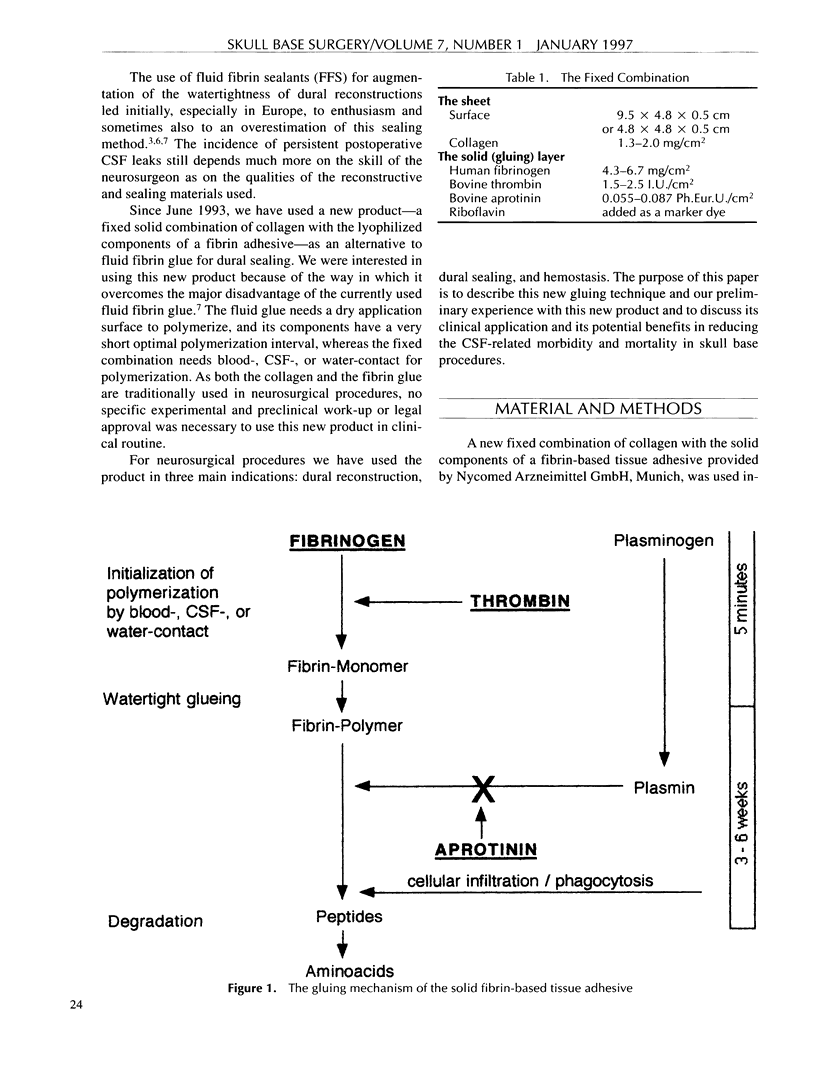
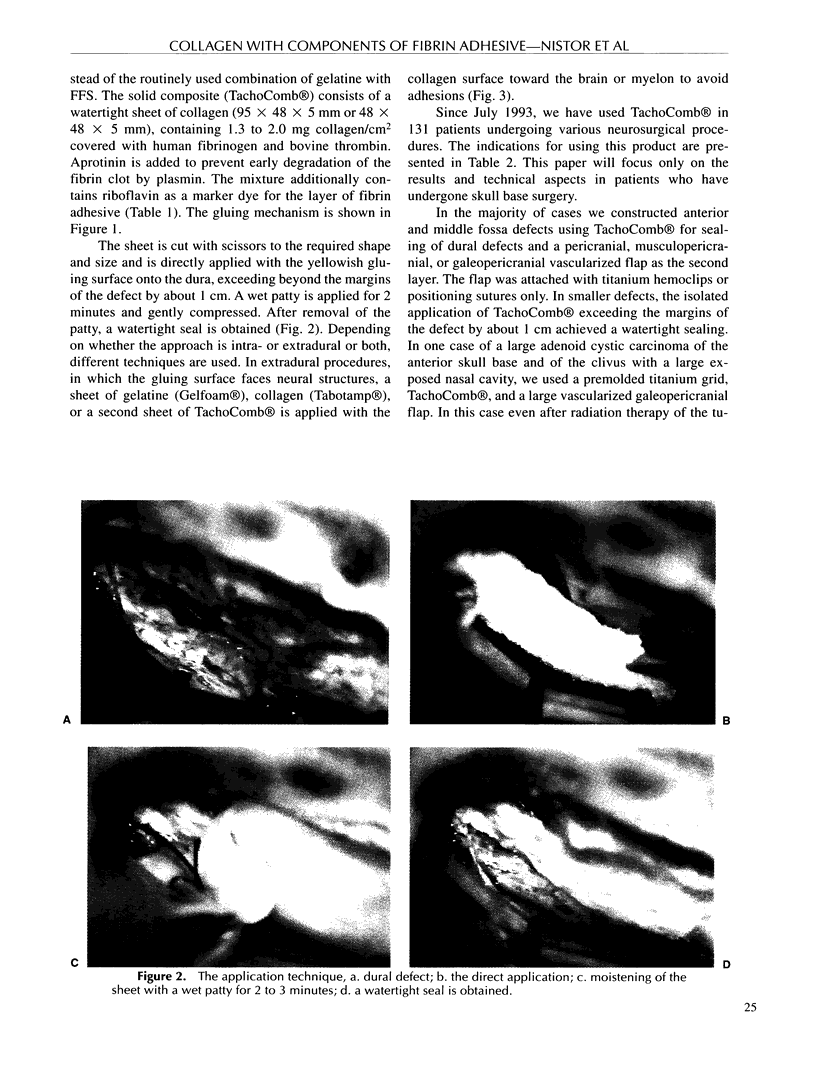
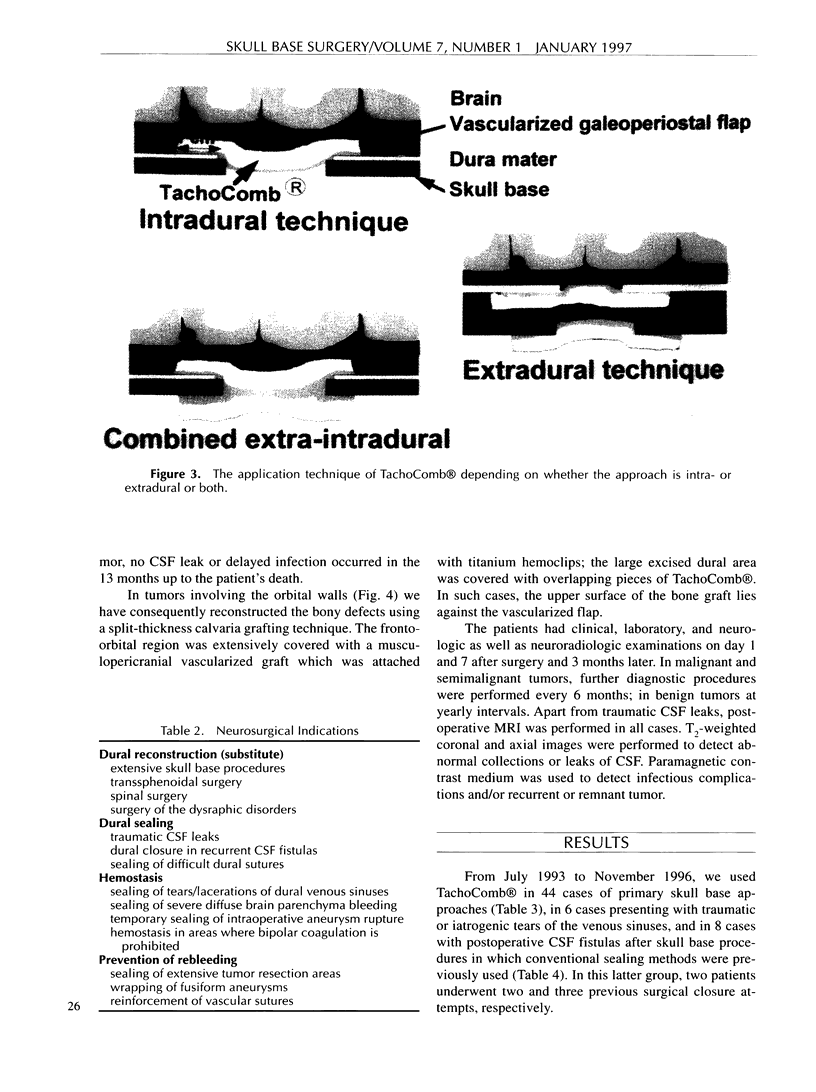
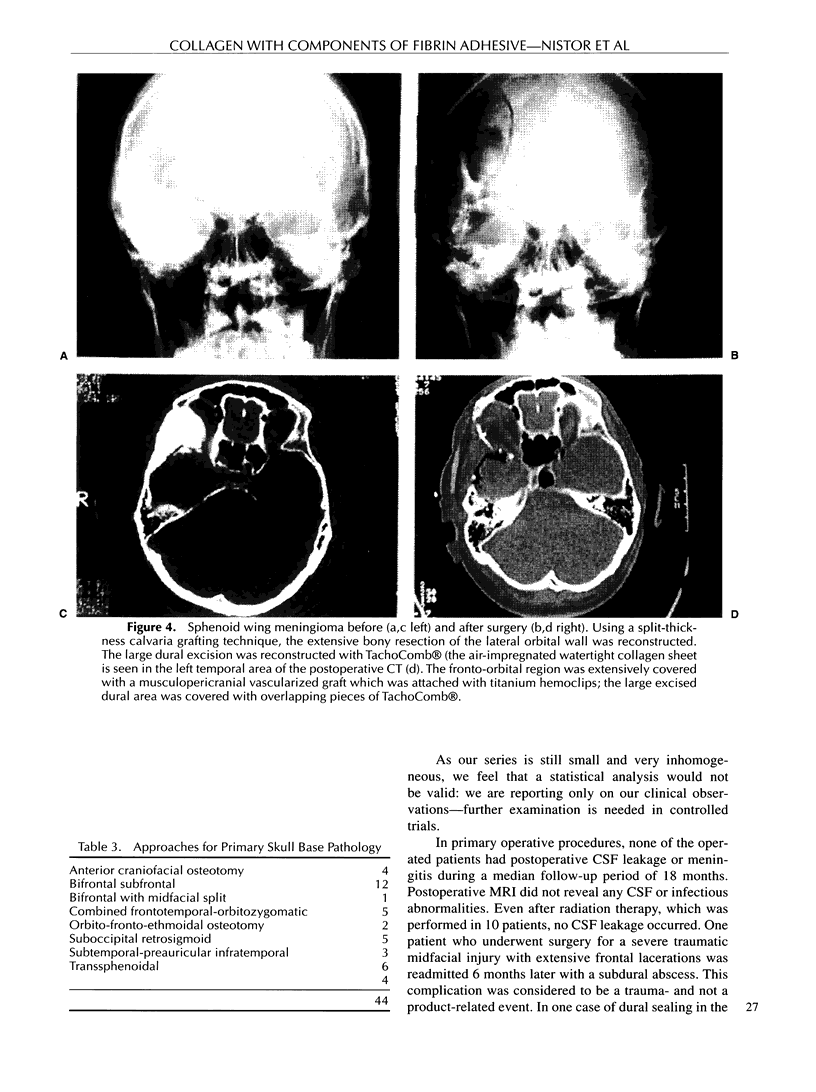
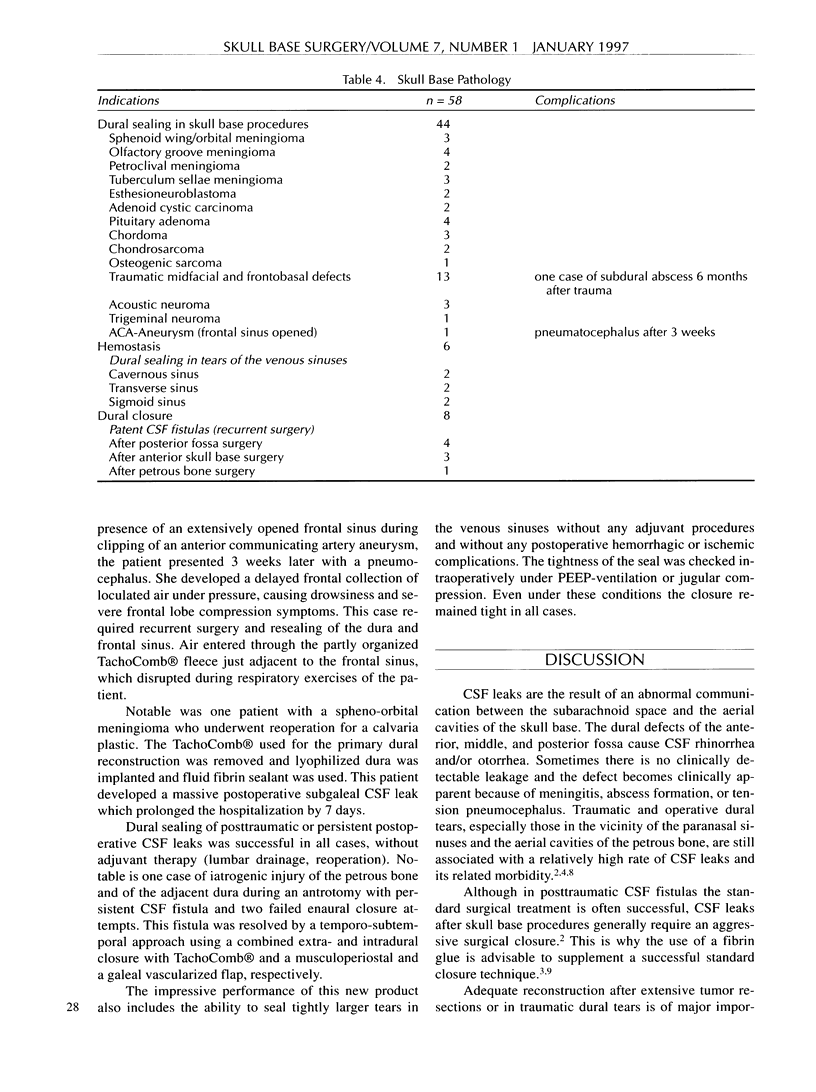
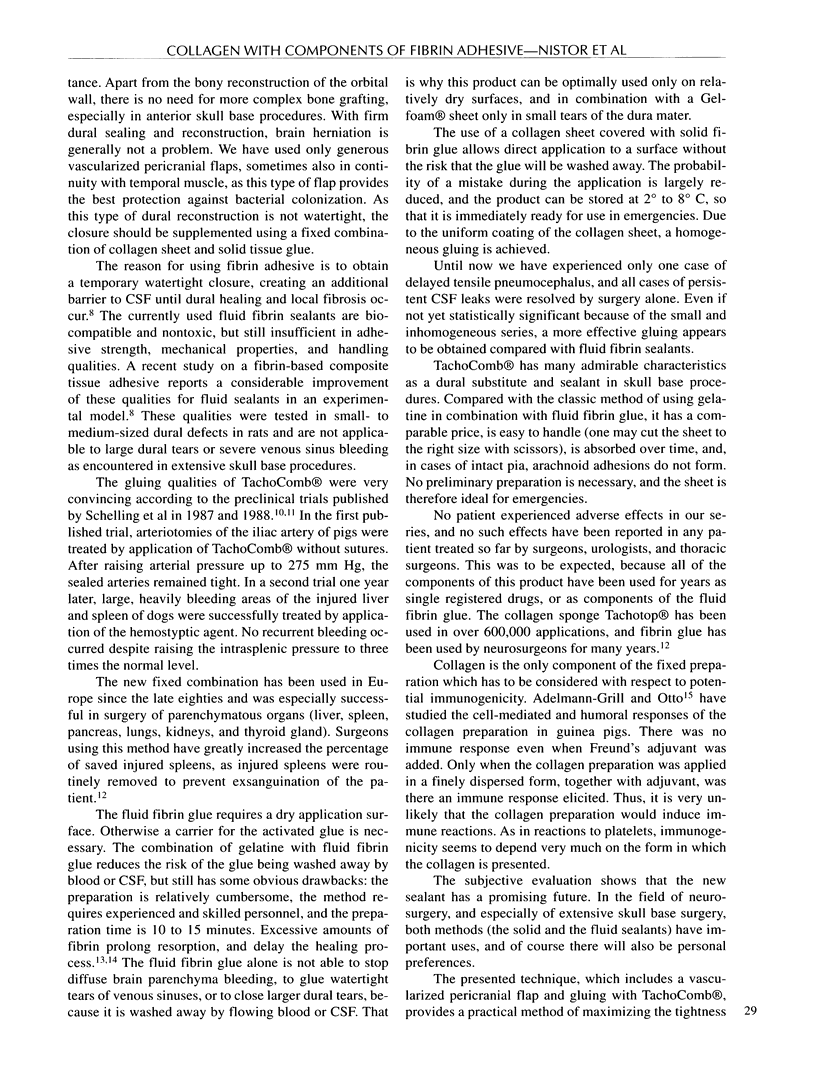
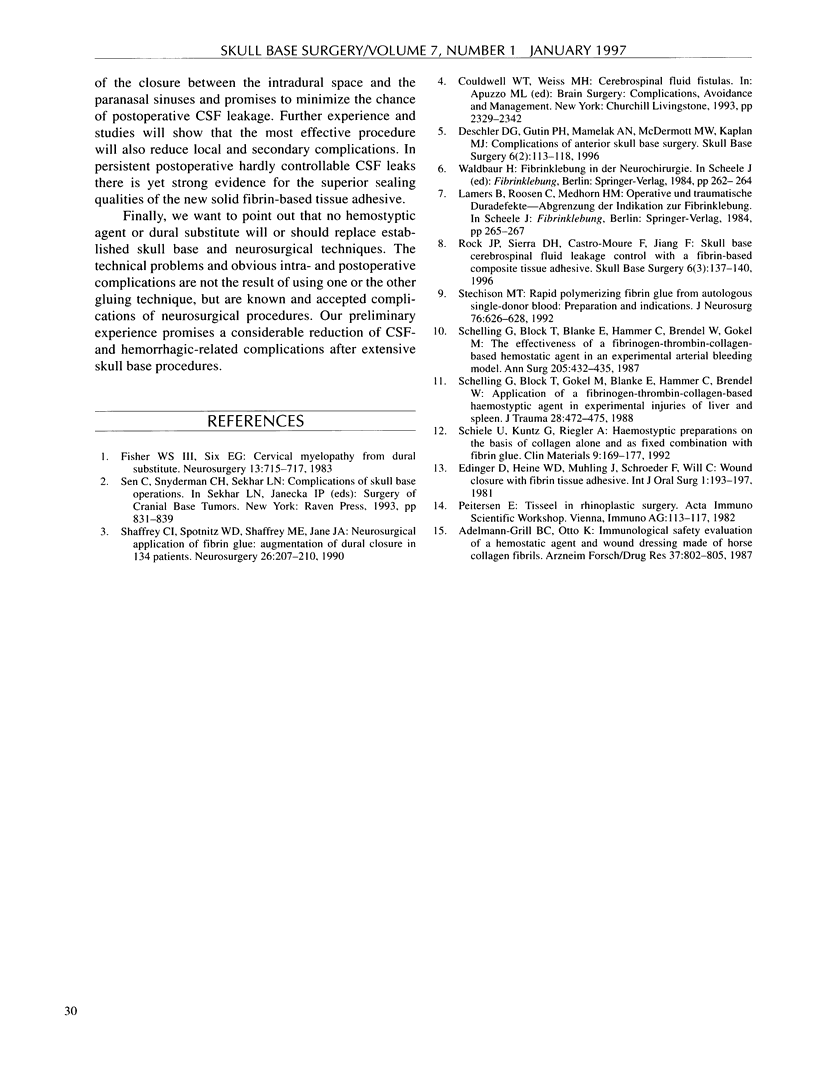
Images in this article
Selected References
These references are in PubMed. This may not be the complete list of references from this article.
- Adelmann-Grill B. C., Otto K. Immunological safety evaluation of a haemostatic agent and wound dressing made of horse collagen fibrils. Arzneimittelforschung. 1987 Jul;37(7):802–805. [PubMed] [Google Scholar]
- Deschler D. G., Gutin P. H., Mamelak A. N., McDermott M. W., Kaplan M. J. Complications of anterior skull base surgery. Skull Base Surg. 1996;6(2):113–118. doi: 10.1055/s-2008-1058652. [DOI] [PMC free article] [PubMed] [Google Scholar]
- Edinger D., Heine W. D., Mühling J., Schröder F., Will O. Wound closure with a fibrin tissue adhesive. Int J Oral Surg. 1981;10(Suppl 1):193–197. [PubMed] [Google Scholar]
- Fisher W. S., 3rd, Six E. G. Cervical myelopathy from dural substitute. Neurosurgery. 1983 Dec;13(6):715–717. doi: 10.1227/00006123-198312000-00020. [DOI] [PubMed] [Google Scholar]
- Rock J. P., Sierra D. H., Castro-Moure F., Jiang F. Skull base cerebrospinal fluid leakage control with a fibrin-based composite tissue adhesive. Skull Base Surg. 1996;6(3):137–140. doi: 10.1055/s-2008-1058636. [DOI] [PMC free article] [PubMed] [Google Scholar]
- Schelling G., Block T., Blanke E., Hammer C., Brendel W., Gokel M. The effectiveness of a fibrinogen-thrombin-collagen-based hemostatic agent in an experimental arterial bleeding model. Ann Surg. 1987 Apr;205(4):432–435. doi: 10.1097/00000658-198704000-00015. [DOI] [PMC free article] [PubMed] [Google Scholar]
- Schelling G., Block T., Gokel M., Blanke E., Hammer C., Brendel W. Application of a fibrinogen-thrombin-collagen-based hemostyptic agent in experimental injuries of liver and spleen. J Trauma. 1988 Apr;28(4):472–475. doi: 10.1097/00005373-198804000-00009. [DOI] [PubMed] [Google Scholar]
- Schiele U., Kuntz G., Riegler A. Haemostyptic preparations on the basis of collagen alone and as fixed combination with fibrin glue. Clin Mater. 1992;9(3-4):169–177. doi: 10.1016/0267-6605(92)90097-d. [DOI] [PubMed] [Google Scholar]
- Shaffrey C. I., Spotnitz W. D., Shaffrey M. E., Jane J. A. Neurosurgical applications of fibrin glue: augmentation of dural closure in 134 patients. Neurosurgery. 1990 Feb;26(2):207–210. [PubMed] [Google Scholar]
- Stechison M. T. Rapid polymerizing fibrin glue from autologous or single-donor blood: preparation and indications. J Neurosurg. 1992 Apr;76(4):626–628. doi: 10.3171/jns.1992.76.4.0626. [DOI] [PubMed] [Google Scholar]





